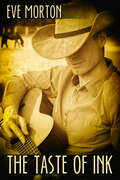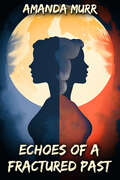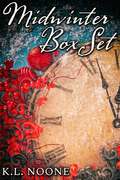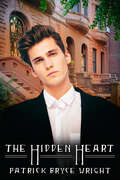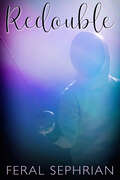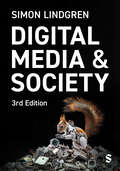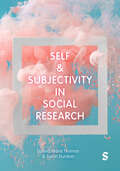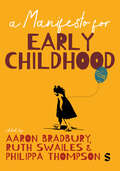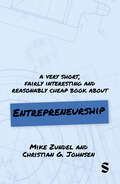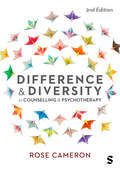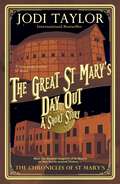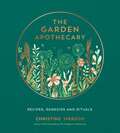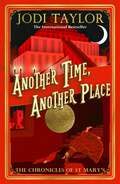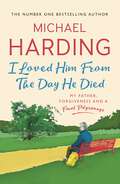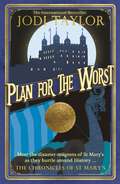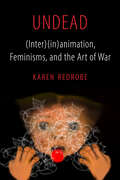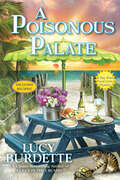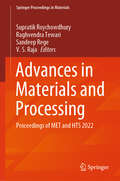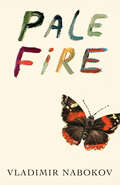- Table View
- List View
Caribbean Home Economics in Action Book 3 Fourth Edition: A complete health & family management course for the Caribbean
by Caribbean Association of Home EconomistsProvide a solid foundation for the study of Home Economics at CSEC® level and for CVQ certification using a project-based approach with the only resource written by the Caribbean Association of Home Economists. This resource enables students to master the design skills process in the Family and Consumer Management disciplines for both personal and professional aspirations. - Develop understanding with 'Consider this' and 'Did you know?' features which allow for reflection and stretches student's critical thinking and problem-solving skills.- Consolidate knowledge with discussion topics and short practice questions, which enables students' confidence in the subject matter to grow as they prepare for assessment. - Identify avenues for career development with realistic and practical connections to training opportunities clearly signposted throughout.
The Taste of Ink
by Eve MortonTrevor Dunn has never gone to the Calgary Stampede. In spite of living in the city all his life, he would much rather stay in his basement and listen to music while drawing comics. When his sister Madeline tricks him to come to the Stampede's opening parade, Trevor believes this is a temporary event ... until he sees a man in a green cowboy hat named Charlie.Over the next few days, Charlie changes Trevor's mind about the Stampede, about country music, and what being a cowboy is really about. When an old flame from Trevor's past -- Mathieu, a punk singer turned acoustic country crooner -- appears in the middle of the festival, Trevor isn’t sure what to do. He likes Charlie and the new life he's been shown, but Mathieu is Trevor's first love, and the one person who understands what life is really like in Calgary basements.The Stampede, Madeline reminds Trevor, is only a ten day affair, then Charlie will go back to his job in Toronto and Mathieu will go on tour. Should Trevor try to make amends with Mathieu and his past, or should he stay with Charlie and embrace a new kind of future? Can there be life outside of Calgary basements? Or will Trevor always be stuck in the shadows, never riding off into the sunset?
Echoes of a Fractured Past
by Amanda MurrLeighton Voss arrives on Echo Island, drawn by reports of strange occurrences which have disrupted its once tranquil serenity. As an investigative journalist with a passion for uncovering hidden stories, Leighton hopes to uncover the truth behind the island’s mysteries, something that might offer the clarity she’s been seeking, both in her career and her personal life. What she doesn’t expect is to become entangled in a mystery that feels far more personal and unsettling than anything she’s chased before.While exploring the island’s jagged cliffs, Leighton stumbles upon a hidden passage that leads her to a world frozen in time -- a vintage village suspended in the past and a woman named Audrey, whose quiet sadness seems to hold the key to the island’s strange happenings. Audrey’s elegance and mysterious presence immediately draw Leighton in, and as the two grow closer, Leighton finds herself deeply immersed in the enigma surrounding Audrey and the island.Caught between the need to uncover the truth and her growing, undeniable feelings for Audrey, Leighton is forced to face an impossible choice. There may be a way out of the cycle that has entrapped the island, but escaping it could mean losing the woman she’s come to care for. As the tension between the promise of freedom and her emotional attachment to Audrey intensifies, Leighton must confront how much she’s willing to sacrifice -- not just for her own future, but for the woman who has captured her heart.
Midwinter Box Set
by K. L. NooneIn a magical Regency London at Midwinter, anything can happen -- from ice elementals to art theft, from marriage proposals to marriages of convenience turned real. This box set includes the four best-selling stories in K.L. Noone's Regency Midwinter series, a prequel to her popular Demon for Midwinter universe. When Preternatural Division Bow Street Runner Kit Thompson is sent to investigate unnatural weather, he finds more than expected in Harry, Viscount Sommersby. Contains the stories:Snowed In: Kit and Harry: Someone or something is causing magical blizzards at Fairleigh Hall. Constable Kit Thompson is to investigate. The Earl’s brother, Harry Arden, wants to help, but he’s an irritating temptation. The estate hides a family secret. When they end up snowed in together at the old hunting lodge, they’ll learn to trust each other with their secrets ... and their hearts.Midwinter Firelight: Kit Thompson, Bow Street Preternatural Division constable, is looking forward to Midwinter. His lover Harry, Viscount Sommersby, is visiting, and Kit wants to show Harry London and has plans for Harry in bed. But Kit’s Chief Magistrate needs him. And the case is important. Taking up Kit’s time. Even worse, Harry wants to help. And Kit could use Harry’s talents. But that means endangering Harry.Midwinter Music: Preternatural Division chief magistrate Sam has a problem. Someone’s magically stealing art. His scandalous ex-stepbrother is in Town. And if John knows about the thefts, Sam needs to find out. John loathed his viscount stepfather, even before his mother fled the marriage. But he cares about his family. He’s here for justice, even if that involves theft. But he might not mind being caught by Sam.Midwinter Marriage: The Honorable Edmund Rookwood needs to get married. By Midwinter. Or his father will disinherit him. Edmund has never fallen in love easily and, according to his father, he’s a disappointment. Who would say yes to him? Fortunately, his best friend Sebastian offers to help. Sebastian’s proposal is logical, but this Midwinter marriage of convenience awakens unexpected emotions.
The Hidden Heart
by Patrick Bryce WrightAt the Kissinger-Mann Detective Agency, the mystery of love is solved just as often as crimes. When Detective Ellis Isaacs joins the agency, he falls in love with his silver fox of a boss, Richard Quillen. However, Ellis faces two big problems: he tends to fall for straight men, and even when he doesn’t, Ellis’s ex-boyfriends claim he’s inaccessible or even cold. Also, he has no idea how Richard will react to the age gap between them.As Ellis works hard to spend time with Richard outside of work, problem after problem unfolds. Is Richard straight, or is he already dating a male coworker? Is the age gap a problem, or is the issue Ellis’s reputation for being cold? Will this older, wiser man see Ellis’s true heart and return his feelings, or will Ellis’s heart remain hidden?
Redouble
by Feral SephrianThorn is less than pleased to see Dylan at their first major fencing tournament of the semester. He and Dylan had had a brief but hot and passionate fling after the championships half a year ago, but then Dylan cut Thorn out of his life with no explanation and they haven’t seen each other since. A fencing tournament is a good place to vent frustrations -- it’s one of the few places where it’s okay to stab your ex with a sword -- but Thorn doesn’t just want to vent, he wants answers.However, when Dylan does apologize and give his side of the story, it doesn’t make Thorn feel better. If anything, he’s even more conflicted between accepting Dylan’s excuses so they can be together again, or holding firm to protect his wounded pride and giving Dylan the same cold shoulder Thorn received months ago. But as they meet as rivals on the fencing strip, can Thorn really retreat from this chance to rekindle what they had before? Or will he lunge for this opportunity to see where it takes them?
Digital Media and Society
by Simon LindgrenIn today’s world, digital media and the social are irreversibly intertwined. In this cutting-edge introduction, Simon Lindgren introduces a wide range of concepts and approaches that aid in exploring and understanding what it means to live in a digital society. In this new edition you will encounter: - An exploration of non-progressive forms of digital activism, including radicalization and hate groups - Added coverage of post-pandemic, post-truth digital media with topics such as disinformation and computational propaganda - Cutting-edge content on algorithms, covering recent developments in generative AI, LLMs, and synthetic media such as deepfakes. - Expanded learning features and discussion prompts to put theory into practice Updated, revised and expanded throughout to cover emerging platforms and issues, this book is a must-have for students exploring digital media, social media, and the internet.
Digital Media and Society
by Simon LindgrenIn today’s world, digital media and the social are irreversibly intertwined. In this cutting-edge introduction, Simon Lindgren introduces a wide range of concepts and approaches that aid in exploring and understanding what it means to live in a digital society. In this new edition you will encounter: - An exploration of non-progressive forms of digital activism, including radicalization and hate groups - Added coverage of post-pandemic, post-truth digital media with topics such as disinformation and computational propaganda - Cutting-edge content on algorithms, covering recent developments in generative AI, LLMs, and synthetic media such as deepfakes. - Expanded learning features and discussion prompts to put theory into practice Updated, revised and expanded throughout to cover emerging platforms and issues, this book is a must-have for students exploring digital media, social media, and the internet.
Self and Subjectivity in Social Research
by Donna Maria Thomas Sarah DurstonThis is a book that thinks about what it means to be human and what this could mean for social research. Addressing ontological shifts across the social sciences, the book reconsiders the nature of self, experience and social reality and their implications for doing research differently. It delves into wide-ranging topics from the self in crisis, through the self and the nature of language, to ethics and the self. The book also: Helps you understand epistemology and ontology in practice with case studies of real world research; Critiques dominant approaches and examines global perspectives and contexts that challenge them; Explores the potential of interdisciplinary approaches to resolve tensions in social research; Discusses how ontology can shape research practice, policy development and social support systems. This book will help postgraduate students, academics, researchers and teachers embrace new ways of thinking about self and subjectivity. Donna M. Thomas is a Research Fellow at the University of Central Lancashire and Co-director of ICreateS International Research Unit & Research. Sarah Durston is head of the Sentience and Science Foundation, the Netherlands, honorary professor at UCLan and co-director of the ICreateS research unit, and professor in developmental neuroscience at Utrecht University, the Netherlands.
Self and Subjectivity in Social Research
by Donna Maria Thomas Sarah DurstonThis is a book that thinks about what it means to be human and what this could mean for social research. Addressing ontological shifts across the social sciences, the book reconsiders the nature of self, experience and social reality and their implications for doing research differently. It delves into wide-ranging topics from the self in crisis, through the self and the nature of language, to ethics and the self. The book also: Helps you understand epistemology and ontology in practice with case studies of real world research; Critiques dominant approaches and examines global perspectives and contexts that challenge them; Explores the potential of interdisciplinary approaches to resolve tensions in social research; Discusses how ontology can shape research practice, policy development and social support systems. This book will help postgraduate students, academics, researchers and teachers embrace new ways of thinking about self and subjectivity. Donna M. Thomas is a Research Fellow at the University of Central Lancashire and Co-director of ICreateS International Research Unit & Research. Sarah Durston is head of the Sentience and Science Foundation, the Netherlands, honorary professor at UCLan and co-director of the ICreateS research unit, and professor in developmental neuroscience at Utrecht University, the Netherlands.
A Manifesto for Early Childhood
by Aaron Bradbury Ruth Swailes Philippa ThompsonThe Early Childhood Sector faces many challenges today. Sector-wide pressures and policy changes mean settings are struggling with many issues including funding, retention and recruitment of staff. As change looms, this new book takes the opportunity to explore what could be possible. It draws together expertise and experience from across many sectors, including education, health, and social work to explore what Early Childhood provision could look like, if we got it right. What do Early Childhood experts recommend? What is genuine, unconstrained good practice? What do we want for our children, families, and colleagues in the sector? This hopeful book looks forwards to what could be possible. It is A Manifesto for Early Childhood.
A Manifesto for Early Childhood
by Aaron Bradbury Ruth Swailes Philippa ThompsonThe Early Childhood Sector faces many challenges today. Sector-wide pressures and policy changes mean settings are struggling with many issues including funding, retention and recruitment of staff. As change looms, this new book takes the opportunity to explore what could be possible. It draws together expertise and experience from across many sectors, including education, health, and social work to explore what Early Childhood provision could look like, if we got it right. What do Early Childhood experts recommend? What is genuine, unconstrained good practice? What do we want for our children, families, and colleagues in the sector? This hopeful book looks forwards to what could be possible. It is A Manifesto for Early Childhood.
A Very Short, Fairly Interesting and Reasonably Cheap Book About Entrepreneurship (Very Short, Fairly Interesting & Cheap Books)
by Mike Zundel Christian Garmann JohnsenConceived by Chris Grey, the Very Short, Fairly Interesting and Reasonably Cheap series offers and antidote to conventional textbooks. Each book takes a core area of the curriculum and turns it on its head by providing a critical and sophisticated overview of the key issues and debates in an informal, conversational and often humorous way. Mike Zundel and Christian G. Johnsen take inspiration from philosophy and art to consider possibilities and effects of entrepreneurship in a changing world. Reflecting on the themes of creativity, destruction, technology and flow, this book offers a theory-driven and critical take on entrepreneurship in an accessible and engaging style, generating new ways of thinking about what entrepreneurship means today and what it could be in the future. Mike Zundel is a Professor in Organization Studies at the University of Liverpool Management School. Christian Garmann Johnsen is an Associate Professor at Copenhagen Business School.
A Very Short, Fairly Interesting and Reasonably Cheap Book About Entrepreneurship (Very Short, Fairly Interesting & Cheap Books)
by Mike Zundel Christian Garmann JohnsenConceived by Chris Grey, the Very Short, Fairly Interesting and Reasonably Cheap series offers and antidote to conventional textbooks. Each book takes a core area of the curriculum and turns it on its head by providing a critical and sophisticated overview of the key issues and debates in an informal, conversational and often humorous way. Mike Zundel and Christian G. Johnsen take inspiration from philosophy and art to consider possibilities and effects of entrepreneurship in a changing world. Reflecting on the themes of creativity, destruction, technology and flow, this book offers a theory-driven and critical take on entrepreneurship in an accessible and engaging style, generating new ways of thinking about what entrepreneurship means today and what it could be in the future. Mike Zundel is a Professor in Organization Studies at the University of Liverpool Management School. Christian Garmann Johnsen is an Associate Professor at Copenhagen Business School.
Difference and Diversity in Counselling and Psychotherapy
by Rose CameronThis book guides you through the complexities of difference and diversity in counselling and psychotherapy practice. It introduces contemporary thinking on the construction of difference, social justice and social identity and applies the theories to therapy practice. By exploring the therapist skills and competencies needed to work ethically and with sensitively, and with reflective exercises and case examples, it will help you to work more confidently and sensitively with your clients. Rose Cameron is a practitioner and a trainer in counselling and psychotherapy. She is currently a Teaching Fellow at the University of Edinburgh.
Difference and Diversity in Counselling and Psychotherapy
by Rose CameronThis book guides you through the complexities of difference and diversity in counselling and psychotherapy practice. It introduces contemporary thinking on the construction of difference, social justice and social identity and applies the theories to therapy practice. By exploring the therapist skills and competencies needed to work ethically and with sensitively, and with reflective exercises and case examples, it will help you to work more confidently and sensitively with your clients. Rose Cameron is a practitioner and a trainer in counselling and psychotherapy. She is currently a Teaching Fellow at the University of Edinburgh.
The Great St Mary's Day Out
by Jodi TaylorA Chronicles of St Mary's short story that is sure to entertain. If you love Jasper Fforde or Ben Aaronovitch, you won't be able to resist Jodi Taylor. Astonishingly, Dr Bairstow has declared a holiday. Even more astonishingly - he's paying for it. Needless to say, there are strings attached. They have to record the 1601 performance of Hamlet, with Shakespeare himself in the role of the Ghost. It doesn't go well, of course. With Dr Bairstow and Mrs Mack turning a simple visit to a street market into a public brawl, Professor Rapson inadvertently stowing away on a vessel bound for the New World, and Shakespeare himself going up in flames, it would seem that Max, of all people, is the only one actually completing the assignment. Readers love Jodi Taylor: 'Once in a while, I discover an author who changes everything... Jodi Taylor and her protagonista Madeleine "Max" Maxwell have seduced me' 'A great mix of British proper-ness and humour with a large dollop of historical fun' 'Addictive. I wish St Mary's was real and I was a part of it' 'Jodi Taylor has an imagination that gets me completely hooked' 'A tour de force'
The Garden Apothecary: Recipes, Remedies and Rituals
by Christine IversonFrom the best-selling author of The Hedgerow ApothecaryLearn how to make the most of your common garden plants like the herbalists of the pastUnlock the sustainable and ethical art of the apothecarist, and explore its rich folklore and history. Discover the hidden delights in your own garden and how to use them to make delicious edible treats, herbal cures and restorative beauty products. With photographs to help you safely identify edible plants and tips on how best to prepare and preserve your finds, this is the essential guide to enjoying the home-grown riches of your garden.- Enjoy the therapeutic delights of the plants to be found in your own garden with easy-to-follow recipes.- Heal dry hands with calendula balm- Encourage restful sleep with cherry moon milk- Get creative with a vivid blue ink made from cornflowers- Try a borage infusion for tired eyes- Soothe itchy skin with herbal bath tea- Bake a delicious nettle and lemon sponge cake- Freshen up with a rosemary mouthwash- Enjoy a cool glass of red clover lemonadeAnd much more!
Another Time, Another Place: Chronicles of St Mary's 12 (Chronicles of St. Mary's #12)
by Jodi Taylor'Jodi Taylor is quite simply the Queen of Time. Her books are a swashbuckling joyride through History' C. K. MCDONNELL'A great mix of British properness and humour with a large dollop of historical fun' *****BOOK 12 IN THE INTERNATIONALLY BESTSELLING CHRONICLES OF ST MARY'S SERIESFor fans of Jasper Fforde, Doctor Who, Genevieve Cogman and Richard Osman's Thursday Murder Club---'It's time, Max.' And so, a whole new chapter opens up...It's long been known that if a thing can go wrong, it will. With knobs on, usually. Disasters start to pile up. A new colleague with no respect for the past and a great deal to prove. Historians lost in time. And - worst of all - Rosie Lee on her very first jump. Then there's the small matter of Max's dishonourable discharge.From Tudor England to the Tower of Babel - it's all going horribly wrong.Jobless and homeless, Max receives an offer she can't refuse. Another time, another place. A refuge, perhaps.She's got that wrong, too. Readers love Jodi Taylor: 'Once in a while, I discover an author who changes everything... Jodi Taylor and her protagonista Madeleine "Max" Maxwell have seduced me''Addictive. I wish St Mary's was real and I was a part of it''Jodi Taylor has an imagination that gets me completely hooked''A tour de force'
I Loved Him From The Day He Died: My Father, Forgiveness and a Final Pilgrimage
by Michael Harding'I wanted him to be someone he wasn't. I wanted me to be someone I wasn't.'A stunning new book from the number one bestselling, award-winning author of All the Things Left Unsaid and Staring at Lakes.To mark his 70th birthday Michael Harding travelled to Spain and walked the Camino de Santiago. Yet, as he set off on his pilgrimage, he found he wasn't alone. Accompanying him on his 126-kilometre walk in theheat of the Spanish sun was the ghost of his long-dead father, a distant and aloof figure whom he lost when he was only twenty-two years old.Here, with searing honesty and beautifully wrought prose, Harding examines how this man, who had diedalmost half a century ago, could have had such a profound effect on the writer's life.From the Ireland of his youth, to the time of his father's death, and to the holy wells and pubs he frequented in search of a connection with a man he never really knew, I Loved Him From The Day He Died is a heartfeltexamination of love, forgiveness and letting go - told with simple vulnerability and profound insight.
Plan for the Worst (Chronicles of St. Mary's #11)
by Jodi Taylor'A great mix of British properness and humour with a large dollop of historical fun' ***** BOOK 11 IN THE INTERNATIONALLY BESTSELLING CHRONICLES OF ST MARY'S SERIESFor fans of Richard Osman's Thursday Murder Club, Jasper Fforde and Doctor Who.I would have trusted this man with my life. Until a couple of days ago, anyway.You know what they say - hope for the best, but plan for the worst.Max is quite accustomed to everything going wrong. She's St Mary's, after all. Disaster is her default state. But with her family reunited and a jump to Bronze Age Crete in the works, life is getting back to normal. Well, normal for St Mary's. And then, following one fateful night at the Tower of London, everything Max thought she knew comes crashing down around her.Too late for plans. The worst has happened. And who can Max trust now? Readers love Jodi Taylor: 'Once in a while, I discover an author who changes everything... Jodi Taylor and her protagonista Madeleine "Max" Maxwell have seduced me''A great mix of British proper-ness and humour with a large dollop of historical fun''Addictive. I wish St Mary's was real and I was a part of it''Jodi Taylor has an imagination that gets me completely hooked''A tour de force'
Undead: (Inter)(in)animation, Feminisms, and the Art of War (Feminist Media Histories)
by Karen RedrobeA free ebook version of this title is available through Luminos, University of California Press’s Open Access publishing program. Visit www.luminosoa.org to learn more.Undead examines the visual culture of war, broadly understood, through the lens of animation. Focusing on works in which relational, intermedial, and variably paced practices of "(inter)(in)animation" generate aesthetic tactics for thinking about, feeling, and reframing war, Karen Redrobe analyzes works by artists including Yael Bartana, Nancy Davenport, Kelly Dolak and Wazhmah Osman, Gesiye, David Hartt, Helen Hill, Onyeka Igwe, Maryam Mohajer, Ibrahim Nasrallah, and Mary Reid Kelley and Patrick Kelley. Deftly moving between cinema and media studies, peace and conflict studies, and art history, Undead is an interdisciplinary feminist meditation on the complex relationship between states of war and the discourses, infrastructures, and institutions through which memory, change, and understanding are made.
A Poisonous Palate (A Key West Food Critic Mystery #14)
by Lucy BurdetteThe heat is turned up for Hayley Snow and her friends in the next installment of the Key West Food Critic mystery series by USA Today bestselling author Lucy Burdette.When food critic Hayley Snow receives an intriguing email about a mysterious, decades-old disappearance, her curiosity is piqued. Writer Catherine Davitt has returned to the Keys to research a book about Hemingway&’s wives, but she&’s also on the hunt for the truth about her missing friend. Hayley quickly agrees to help investigate and they hit the road to see what clues they might find.Back in the late 1970s, Catherine and her friend Veronica were part of a group of lost souls camping in the mangroves of Big Pine Key, until Veronica vanished, and the sheriff&’s office cleared out the camp. Catherine and Hayley begin interviewing Big Pine Key residents who were around at the time of Veronica&’s disappearance, but uncover more questions than answers. Catherine and Hayley stop to speak with a motel owner who frequented the fringes of the commune, but they find him stabbed to death. Then Catherine also goes missing, and signs point to a connection between the old case and the new murder. It&’s up to Hayley to unravel the knot of secrets and lies before time runs out.
Advances in Materials and Processing: Proceedings of MET and HTS 2022 (Springer Proceedings in Materials #63)
by V. S. Raja Supratik Roychowdhury Raghvendra Tewari Sandeep RegeThis book contains papers by experts from academia, R&D and industry on the state-of-the-art information on materials and processing, materials characterisation and testing, failure analysis, and advances in heat treatment. This book includes papers on advanced manufacturing processes in addition to advances in conventional processes, such as casting and welding. The book includes papers on state-of-the-art characterization techniques and mechanical testing, etc., for advanced materials, such as high entropy alloys and Al and Zr alloys to name a few. Papers on failure analysis case studies from nuclear, automobile, aviation, and oil and gas industry and on ageing management, residual life assessment, and failure mechanisms have relevance to industry. It also includes details on the current challenges, industry standards, and safety aspects for the heat treatment industry. The information provided is a valuable addition to the existing literature and will serve as a reference for R&D, academia, and industry.
Pale Fire: A Poem In Four Cantos By John Shade (Vintage International #940)
by Vladimir NabokovA darkly comic novel of suspense, literary idolatry and one-upmanship, and political intrigue from one of the leading writers of the twentieth century, the acclaimed author of Lolita."Half-poem, half-prose...a creation of perfect beauty, symmetry, strangeness, originality and moral truth. One of the great works of art of this century." —Mary McCarthy, New York Times bestselling author of The Group An ingeniously constructed parody of detective fiction and learned commentary, Pale Fire offers a cornucopia of deceptive pleasures, at the center of which is a 999-line poem written by the literary genius John Shade just before his death. Surrounding the poem is a foreword and commentary by the demented scholar Charles Kinbote, who interweaves adoring literary analysis with the fantastical tale of an assassin from the land of Zembla in pursuit of a deposed king. Brilliantly constructed and wildly inventive, Vladimir Nabokov's witty novel achieves that rarest of things in literature—perfect tragicomic balance.

